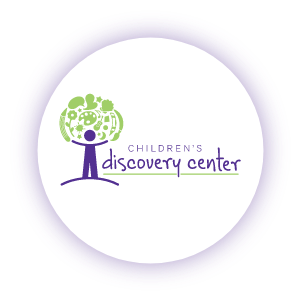
In his poem, “100 Languages,” Reggio Emilia Approach founder, Loris Malaguzzi, posits the complexity and potential of childhood discovery. “The child has a hundred languages…a hundred hands…a hundred thoughts…a hundred ways of thinking.”
It was this way of thinking by Malaguzzi and those within his Reggio Emilia, Italy community that inspired the birth of a new approach to childhood education. Together, they not only embarked their community on a journey of self-discovery but revolutionized early childhood education around the world in the process.
But what is Reggio Emilia?
What is Reggio Emilia?
Reggio Emilia is a highly personal, hands-on, inquiry-based approach to early childhood education that believes the child is instrumental in their own development. Implemented around the globe, the Reggio Emilia curriculum invites children to explore concepts by investigating, creating and collaboratively solving problems as a group.
At Children’s Discovery Center, our philosophy holds that children are “competent, capable and amazing.” We understand that each child is unique in their own way and, because of this, so are their intellectual interests and the ways in which they learn best. We are active participants in their discovery, and, as a result, Reggio Emilia is the perfect fit for this mission and our commitment to the children and parents of Toledo.
What are our roles in the Reggio Emilia philosophy?
A Reggio Emilia-inspired learning environment is many things: natural, encouraging, compassionate, inspired. However, above all, it is Reggio Emilia’s collaborative nature that promotes such effective growth. Educators, children and their families work together as a team to inspire and guide each other on their education journey, with each having their own role to play.
The Child’s Role
At the center of this approach is the child. Where the average educational method would see teachers leading preconstructed lessons, Reggio Emilia allows the child’s interests and natural sense of exploration to lead the process. Reggio Emilia children are explorers, communicators and seekers.
The Teacher’s Role
Reggio Emilia educators are responsible for ushering children on their paths through creativity and guided exploration. In a Reggio Emilia classroom, teachers are taught to pay close attention to their students’ conversations and identify when their curiosities are peaked.
For example, our Children’s Discovery Center teacher may notice their class has been asking increasing questions about dinosaurs. Under Reggio Emilia, this teacher would most likely begin to shape a lesson around the initial interest of dinosaurs which then may branch out to cover a variety of related topics based on evolving curiosities.
The Parent’s Role
As the child’s primary caregiver and leading role model, parents are essential in the Reggio Emilia philosophy. Educators are only supplementary to the important role parents play beyond the classroom. Aside from the basics of parenting, such as providing safety and care, it is the parent’s responsibility to nurture their little one’s creativity, sense of discovery and intellect by becoming an active and interested participant in the child’s development.
The CDC Difference
At Children’s Discovery Center, we believe that successful learning begins in a compassionate environment. Through our hands-on, S.T.E.A.M. powered lessons, we encourage children to follow their paths and find their light by discovering the natural world around them. Contact us today to learn more about our unique approach to learning, enroll your child and tour our facilities.
 419-867-8570
419-867-8570